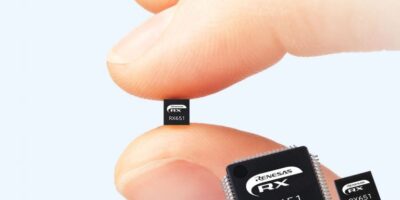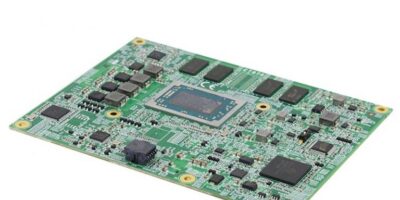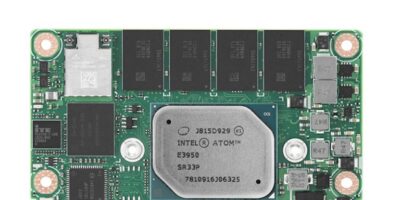Reducing PCB footprint by up to 59 per cent, the RX651 32-bit microcontrollers provide functionality for space constrained IoT connectivity modules and edge devices.
Renesas Electronics announced the four new RX651 microcontrollers, supplied in small LQFP and BGA packages, that have been added to the RX651 family. The 64-pin BGA package measures 4.5 x 4.5mm, which reduces footprint size by 59 per cent compared to the 100-pin LGA and a 64-pin LQFP, measuring 10 x 10mm reduces the footprint by 49 per cent compared with the 100-pin LQFP. The microcontrollers are designed for a secure endpoint devices employing compact sensor and communication modules in industrial, network control, building automation, and smart metering systems operating at the IoT edge.
The IoT and Industry 4.0 both rely on higher performance, smaller form factor connectivity modules that support confidentiality, data integrity and availability in connected devices. According to Daryl Khoo, vice president of marketing, IoT Platform business division, Renesas Electronics said: “The 64-pin RX651 MCUs give customers the small footprint, high performance, and security features they need to safeguard their connected industrial and manufacturing systems against cyber-attacks.”
The RX651 MCUs integrate connectivity, Trusted Secure IP (TSIP), and trusted flash area protection that enable flash firmware updates in the field through secure network communications. The increase in endpoint devices operating at the edge has increased the need for secure over-the-air (OTA) firmware updates. These RX651 devices support this reprogramming requirement with integrated TSIP and enhanced flash protection. Enhanced security features are based on the RXv2 core and 40nm process that provide a 520 CoreMark score at 120MHz, and strong power efficiency with a 35 CoreMark/mA score as measured by EEMBC Benchmarks.
The integrated dual bank flash memory enables engineers to realise high root-of-trust levels through a combination of TSIP that protects the encryption key. Encryption hardware accelerators including AES, 3DES, RSA, SHA, and TRNG and code flash area protection to safeguard boot code from reprogramming. The dual bank flash function supports both background operation) and SWaP, making it easier for manufacturers to execute in-the-field firmware updates securely and reliably.
The RX651 microcontrollers monitor the operating state of machinery from both inside and outside the factory, enabling data exchanges to change production instructions, and reprogram microcontroller memory to update equipment settings.
The microcontrollers are available now from Renesas Electronics’ distributors. Target boards and starter kits, combined with the e2 studio integrated development environment (IDE) are also available.







